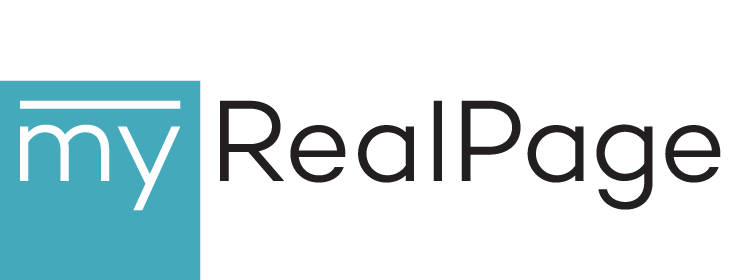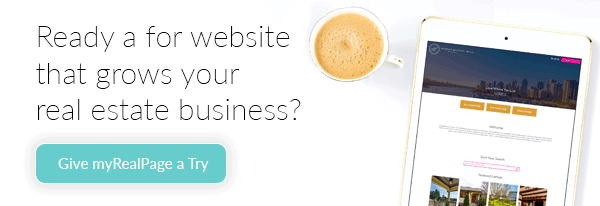How to Create Your First Real Estate Website: A Simple Guide

Starting your real estate website can feel overwhelming. You might wonder what to include, how to make it stand out, and how to connect with potential clients. Don’t worry — we’re here to help! In this blog post, we’ll walk you through how to build a simple, high-performing first real estate website that helps you attract and convert leads. Let’s dive in!
1. Keep Your Website Structure Simple
When it comes to websites, simple is better. You want visitors to find what they’re looking for quickly and easily. This means organizing your pages logically so that they make sense to anyone who visits. Here’s a basic structure to get you started:
- Homepage: The first thing visitors see. This is where you make a great first impression.
- About Me: Tell people who you are and why they should work with you.
- Listings: Showcase your active listings and sold properties.
- Community Pages: Share information about neighborhoods you serve.
- Blog: Post helpful articles to show off your expertise (optional but powerful).
- Contact Page: Make it easy for potential clients to get in touch.
Why This Matters: A clean, organized website improves the user experience and keeps people on your site longer, increasing the chances they’ll reach out to you.
2. Must-Have Pages for Real Estate Success
Here’s what to include on each page to make it work hard for your business:
Homepage:
- A welcoming message that shares your value proposition (more on that below).
- A professional photo of you.
- A search bar for listings.
- A clear call-to-action (CTA) like “View Listings” or “Schedule a Consultation.”
About Me:
- Your story. What led you to real estate?
- What makes you different from other agents?
- Testimonials from happy clients.
Listings Page:
- Automatically updated MLS® listings (myRealPage can help with that!).
- Filters so users can search by price, neighborhood, property type, etc.
Community Pages:
- Create pages for key neighborhoods you serve.
- Add automated listing searches so that new listings are always showing on this page.
- Include info on schools, parks, restaurants, and housing trends.
- This positions you as a local expert and builds trust.
Contact Page:
- Your phone number and email.
- A contact form.
- Links to your social media profiles.
3. How to Build Trust and Connection
Real estate is all about relationships. Your website should reflect that. Here’s how:
- Use Real Photos: People want to see the real you! Include professional photos of yourself and your community.
- Write Like You Talk: Keep your tone friendly, helpful, and authentic.
- Show Social Proof: Add client testimonials and reviews to build trust.
Why This Matters: When people feel like they know, like, and trust you, they’re more likely to reach out.
4. Find Your Unique Value Proposition (UVP)
Your UVP is what makes you different from other realtors. Maybe you specialize in first-time buyers, luxury homes, or a specific neighborhood. To find your UVP, ask yourself:
- What do my past clients say they love about working with me?
- What am I passionate about in real estate?
- What makes me stand out from other agents in my area?
Once you know your UVP, highlight it on your homepage, About Me page, and in your marketing.
5. Use the Right Call-to-Actions (CTAs)
A CTA is a prompt that encourages visitors to take action. Here are some examples of effective CTAs:
- “View Listings”: Great for your homepage or listings page.
- “Get a Free Home Evaluation”: Perfect for attracting sellers.
- “Schedule a Consultation”: Ideal for buyers and sellers ready to take the next step.
Where to Place CTAs:
- At the top of your homepage.
- At the end of your About Me page.
- On your listings page.
- In blog posts.
Why This Matters: Clear CTAs guide your visitors toward taking the next step, which helps turn website visitors into leads.
6. Bonus Tip: Make It Easy with myRealPage Templates
We know that building a website from scratch can be tough, which is why myRealPage offers pre-designed website templates tailored specifically for realtors. Our templates include:
- Built-in MLS® integration to automatically display your listings.
- Editable pages for your About Me, Listings, and more.
- Modern, mobile-friendly designs.
You don’t need to be a tech expert to get started — just add your content, and you’re ready to go!
Final Thoughts
Your real estate website is one of your most powerful marketing tools. By keeping your website simple, showcasing your expertise, and using clear CTAs, you can create a site that attracts leads and grows your business.
Need help? That’s what we’re here for! Check out our real estate website templates and let us help you build the real estate website you’ve been dreaming of.
Last Updated on March 26, 2025 by myRealPage


